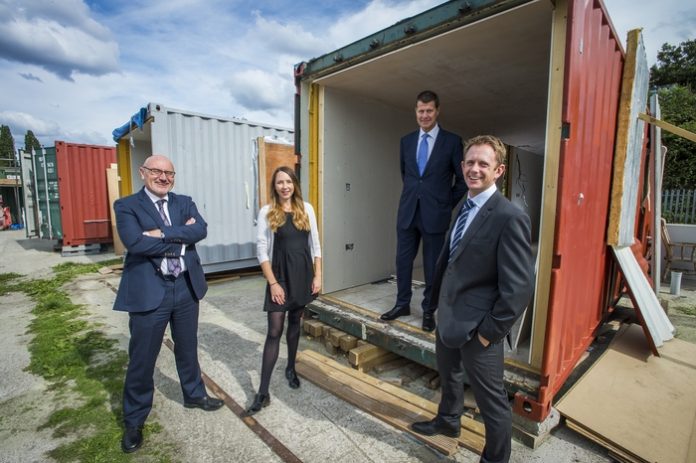
Two former shipping containers have been transformed into homes by staff in the Bristol office of real estate services company Colliers International.
The donated metal containers have been converted into modern dwellings with a lounge/kitchen, fully fitted bathroom and separate bedroom. Each one will be used by social enterprise Help Bristol’s Homeless to provide accommodation for a rough sleeper for an entire year.
The 40ft x 8ft containers are currently based at Malago Road in Bedminster and will be moved to a new site in nearby Spring Street in April, after which they will become occupied.
Tim Davies, head of South West and Wales at Colliers International, said: “Staff in the Bristol office have always rolled up their sleeves and got involved in Corporate Social Responsibility initiatives.
“This ambitious project takes that to a new level, as by helping to transform former shipping containers into temporary homes Colliers staff will also be helping to transform the lives of homeless people in Bristol.”
The team from Colliers in Bristol, led by Senior Surveyor Amy Bracey and Director Nick Williams – in collaboration with Longcroft Building Services and Bracey Interiors – was supported in converting the containers by Screwfix, Artistic Blinds, Britannia Windows, Howdens, Little Greene Paints and Mandarin Stone.
The container homes project was initiated by Jasper Thompson, a restaurant owner and the founder of Help Bristol’s Homeless.
He said: “I used to hand out sleeping bags and food to homeless people to help them, but I wanted to do something more and came up with the idea of converting former shipping containers into temporary homes.
“The ethos of Help Bristol’s Homeless is that the priority for helping people off the streets should be getting them into comfortable accommodation in which they feel safe, and the converted containers are making this possible.
“Everyone accommodated here has been referred after being assessed as being suitable, and while they are with us they are given support in seeking the help they need, and also given opportunities to develop skills by helping in the conversion of the containers into homes.”




















